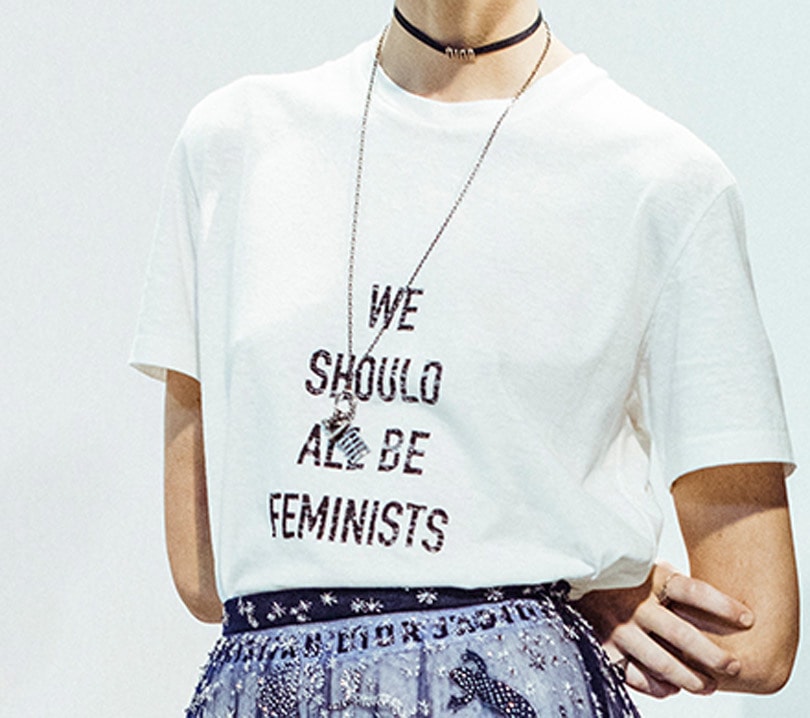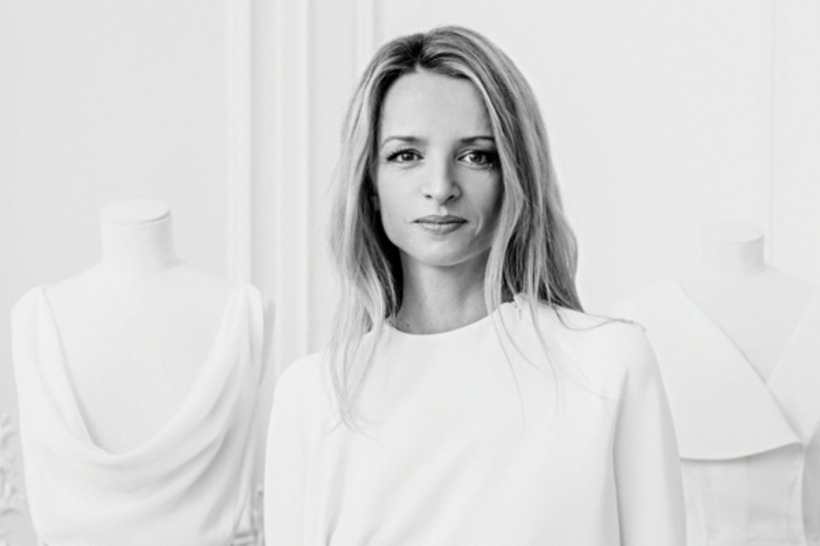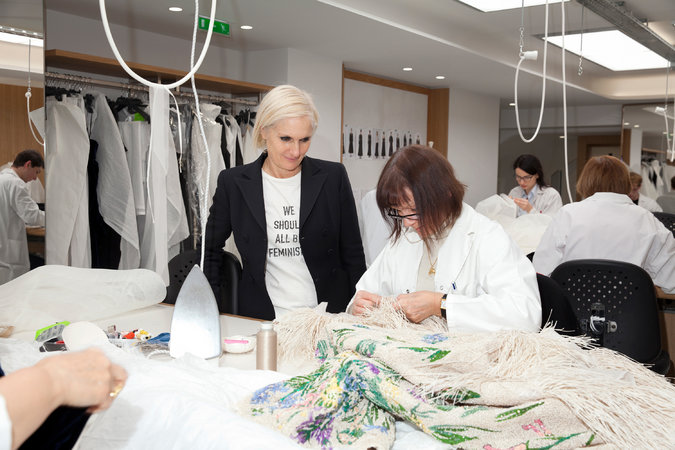Following from last week’s blog post an interesting thought struck me. While female empowerment is one of the biggest fashion trends for Summer 2017, why is it that female empowerment in the industry itself is such a rarity. Why is it a current trend rather than an eternal staple?

Currently, the majority of creative directors for luxury fashion brands are men. Why? Is it that men are more talented, more deserving? No.
Women are miles ahead of the game in other areas: two of the arguably most powerful figures in the industry are women: Anna Wintour, editor-in-chief of Vogue, and Linda Fargo, senior vice-president and women’s fashions director for Manhattan based department store Bergdorf Goodman.
However, in the design field, women are still trailing behind their male counterparts. Let’s take take the three biggest luxury fashion conglomerates: LVMH Moet Hennessey Louis Vuitton, Kering and Richemont, and examine them. Out of over 15 fashion and leather good’s brands owned by LVMH, only 4 of them are led by women. They are Maria Grazia Chiuri at Dior, Phoebe Philo at Céline, Carol Lim at Kenzo, a shared position with Humberto Leon, and Silvia Venturini Fendi who is the creative director for accessories & men’s for Fendi. Within Kering, there are only 2 women heading the 8 brands: Stella McCartney is the creative director for her own label and Sarah Burton helm’s Alexander McQueen. Finally, within Richemont, there is only Natacha Ramsay Levi, the creative director for Chloé.
Major fashion colleges such as Central Saint Martins and New York’s Fashion Institute boast a huge majority of female students who win exceptional placements and excellent graduate jobs. LVMH, Kering and Richemont all boast excellent relationships with leading business schools around the world. In terms of these fashion conglomerates, Delphine Arnault of LVMH is a lone she-wolf among male executives.

While many of the world’s fashion houses were established by women many of them have since been taken over by men: Coco Chanel, Jeanne Lanvin, Madeleine Vionnet, Elsa Schiaparelli, Nina Ricci and Marie-Louise Carven.
There are exceptions that prove the rule. We have the likes of Miuccia Prada, Rei Kawakubo, Tory Burch, Angela Missoni, Donatella Versace, and Consuelo Castiglioni, all of whom either achieved their success by inheriting a family business or by starting their own.
It is a thought that leaves us with many questions. Perhaps it is that female designers are seen as less pioneering or innovative than their male counterparts? Is it that idea that women are incapable of balancing family and work life? Are women more interested in the glamorous side of the industry rather than the business? Is it sexism and male privilege?

The appointments of Maria Grazia Chiuri for Christian Dior, Natacha Ramsay Levi at Chloé, Claire Waight Keller at Givenchy and Bouchra Jarrar for Lanvin show that the tide is turning, but is it soon enough?
***
Supporting women in the fashion industry is of particular importance to us here at the Galway Designers Network. Our current project the Galway Designers Studio House has been established by three women, Ann Petrov of Cozy Handmade Designs, Gayle Poppers of Kizmet Clothing and Virtue Shine of Emerald & Wax, but these women need your help to make their dream a reality. Follow the link to read all about the project and how you can take part.
The Galway Designers Network are always looking for new and exciting designers or anyone who feels they would love to be involved in the Network. Get in touch by commenting below, via Facebook @galwaydesignersnetwork, via Instagram @galway_designersnetwork or email galwayfashionshowcase@gmail.com.





















